The birth of fake news
26.02.2020 | Cinema release of "Curveball"
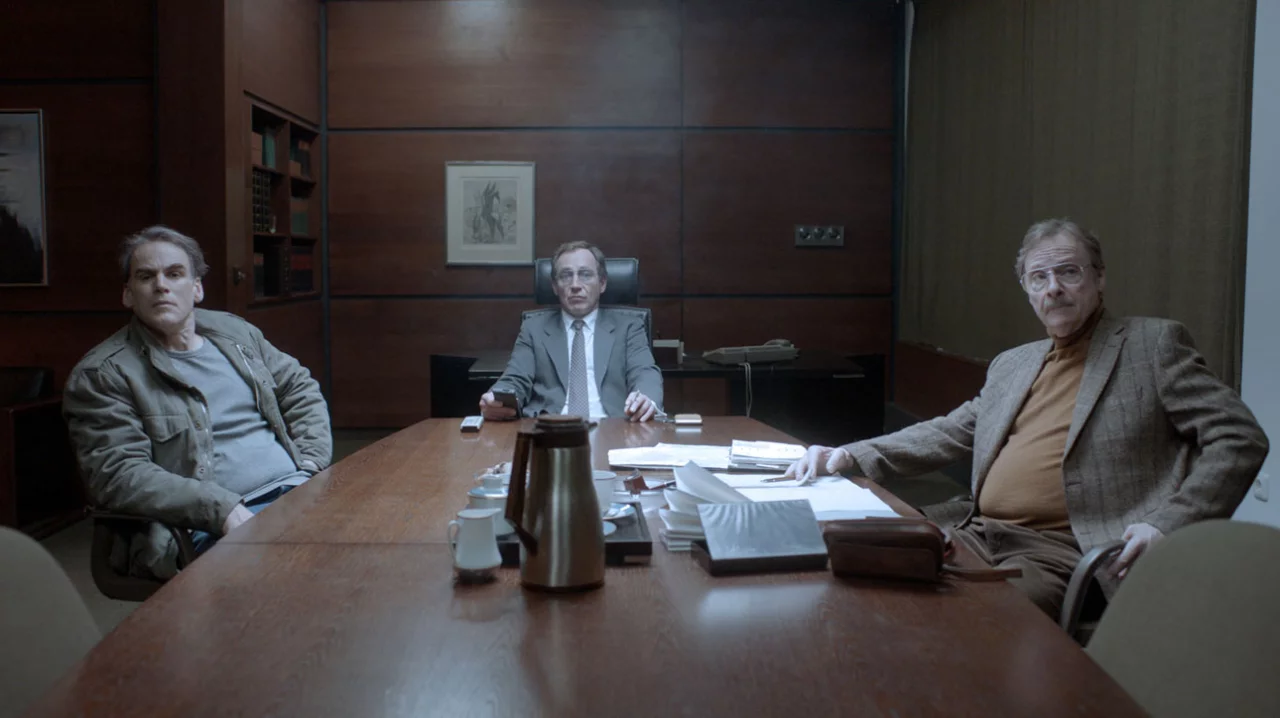
A political drama with grotesque features: Directors Johannes Naber's "Curveball - Wir machen die Warheit" tells the true story of a BND bioweapons expert who, due to an internal mistake, provided arguments in favour of the Iraq War in 2003. Executive Producer is the still young company Bon Voyage Films from Hamburg. Executive Producers Amir Hamz and Christian Springer explain how the film was made over the last ten years.
How did you come up with the story for the film?
Amir Hamz: I came across the story via the NDR Documentary "Die Lügen vom Dienst". The film, which Panorama journalist Stefan Buchen showed me while I was still editing it, is about the involvement of the Federal Intelligence Service in the war in Iraq. Through further research, we then discovered that there was a really extremely exciting story behind the film. The events surrounding "Curveball" were ultimately the birth of what we now call "fake news".
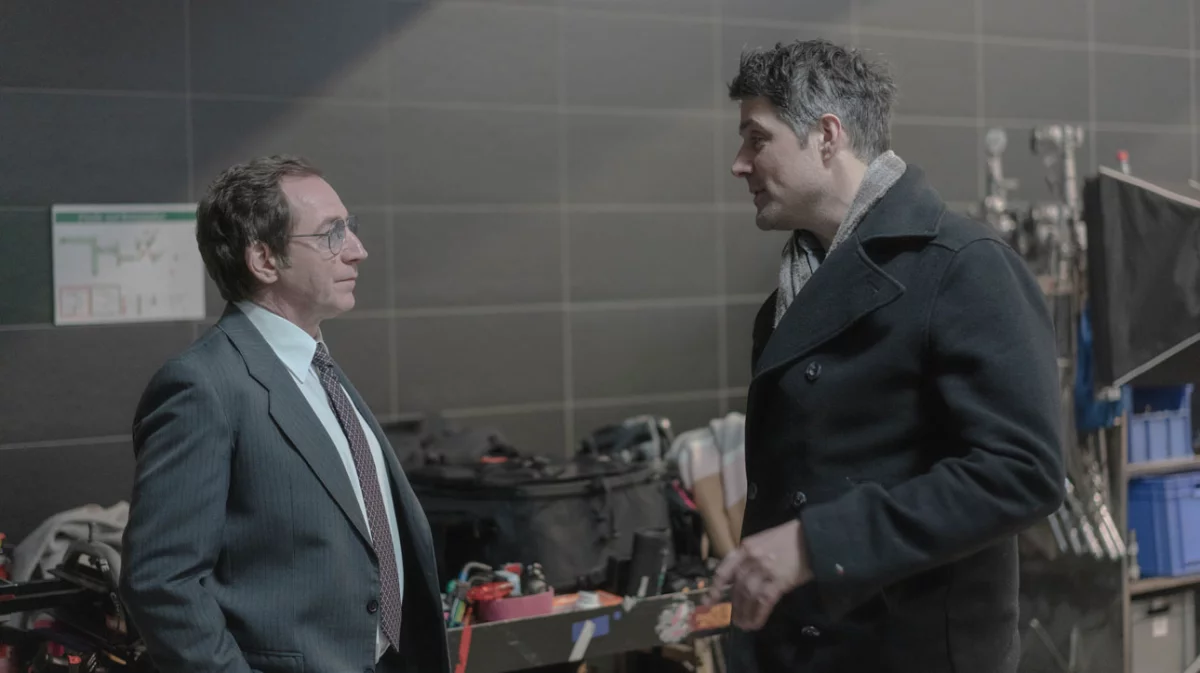
And what happened next?
Amir Hamz: I got the finished film on DVD and thought about it for a good six months. At that time, I had just started as an Executive Producer and was still at the beginning. I first met with Script Writer Wolfgang Kohlhaase, as I wanted to take a very substantive approach. He was immediately interested and became a key source of inspiration at the beginning of our journey, even though he couldn't be involved as Script Writer due to time constraints. Afterwards, I met with Director Johannes Naber, who had won the Max Ophüls Prize a few months earlier for his film "The Albanian". I knew from interviews with him that he is very political and is good at familiarising himself with complex topics. For "The Albanian", he spent a year in Albania and learnt the language, which I found very impressive. I was able to get him interested in the story quite quickly.
After Johannes agreed to be the Director, we all sat down with NDR editor Stefan Buchen several times for four to five hours. The main question during these discussions was from which perspective we wanted to tell the story and what the tone should be. We very quickly decided on the German perspective and wanted to show something that had not yet been seen in the media: In particular, the BND's thirst for recognition and low self-confidence compared to its American big brother.
Christian Springer: For me, the grotesque element was always the decisive factor. In my opinion, telling the film as a strict political thriller would not have been the right approach. The grotesque approach also gave us the necessary freedom.
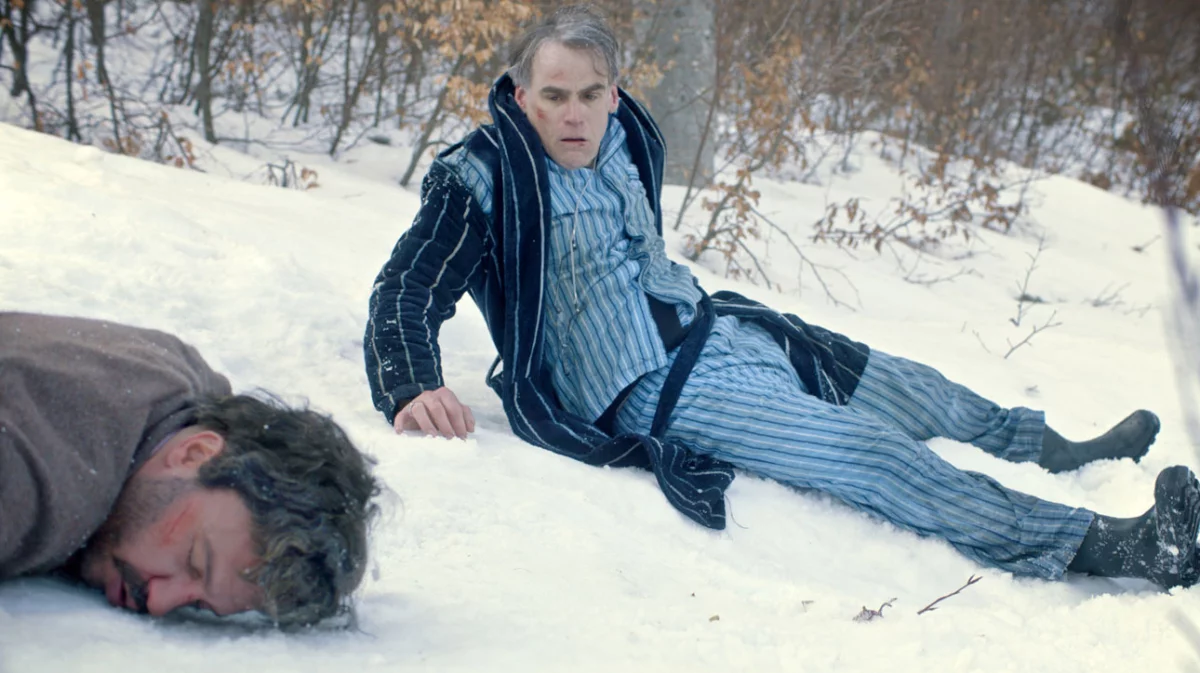
Why did you choose Sebastian Blomberg as the main actor?
Christian Springer: Sebastian Blomberg is a great actor. And: Sebastian and Johannes had already worked quite closely together in several other productions.
What did Blomberg have to bring to the role as an actor?
Amir Hamz: He had to be able to play everything from drama to tragic, humorous and grotesque scenes - quite a range.
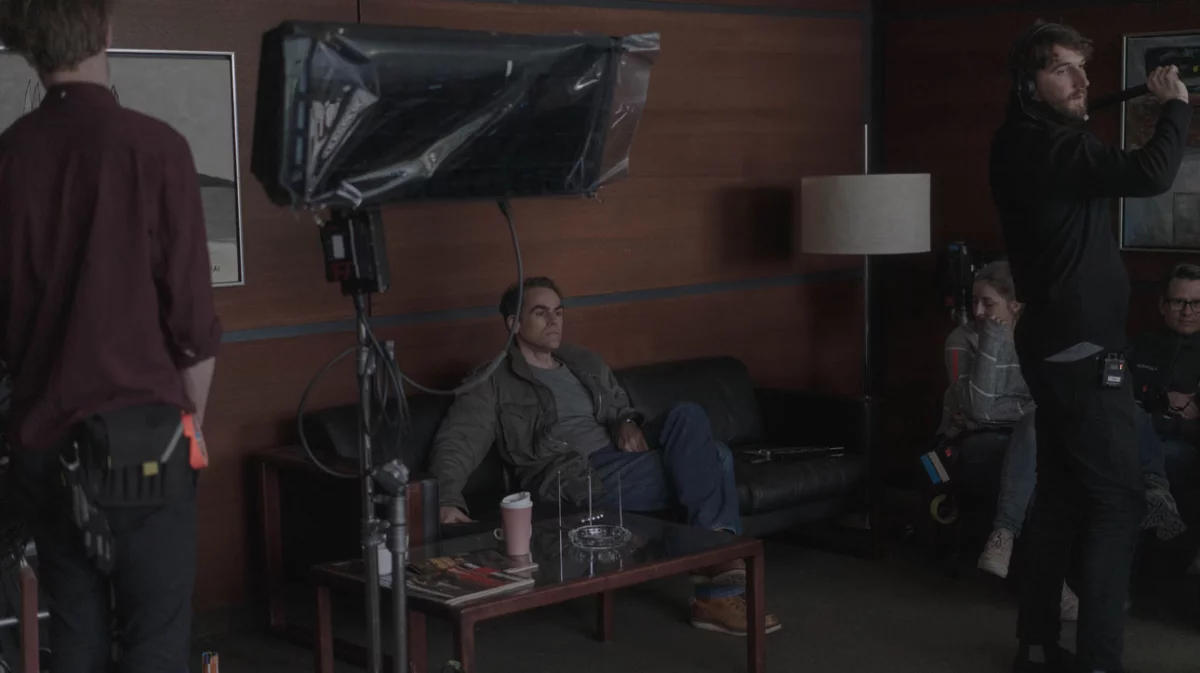
To which genre would you categorise "Curveball"?
Christian Springer: It is a political drama with grotesque features. It does justice to the seriousness of the subject, but - and this is very important to us - is also very entertaining, exciting and funny.
Who of your crew came from Hamburg?
Christian Springer: Almost the entire set design department. Tamo Kunz did the production design, the art director was Seth Turner (both from "The Golden Glove", among others), the Hair & Make Up artist Stefanie Gredig is also from Hamburg, as are two prop masters. And of course our Script Writer Oliver Keidel. So the core team came from the Hanseatic city. Depending on the federal state, however, there was a bit of a mix.
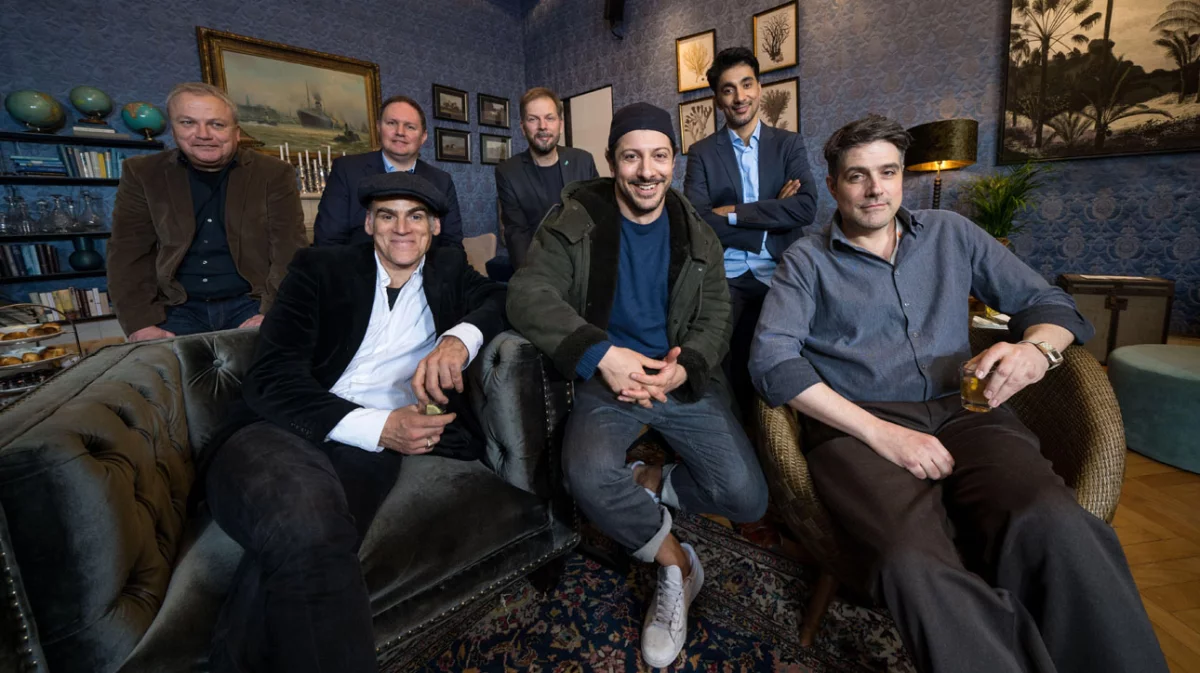
Where have you filmed in the region?
Christian SpringerIn Itzehoe, Elmshorn and Hamburg. In the Hanseatic city, we spent a day filming in front of and inside the Chamber of Commerce. In the film it is the building for the Munich Security Conference. In Itzehoe, the former Gruner und Jahr building on the outskirts of the city became the headquarters of the Federal Intelligence Service.
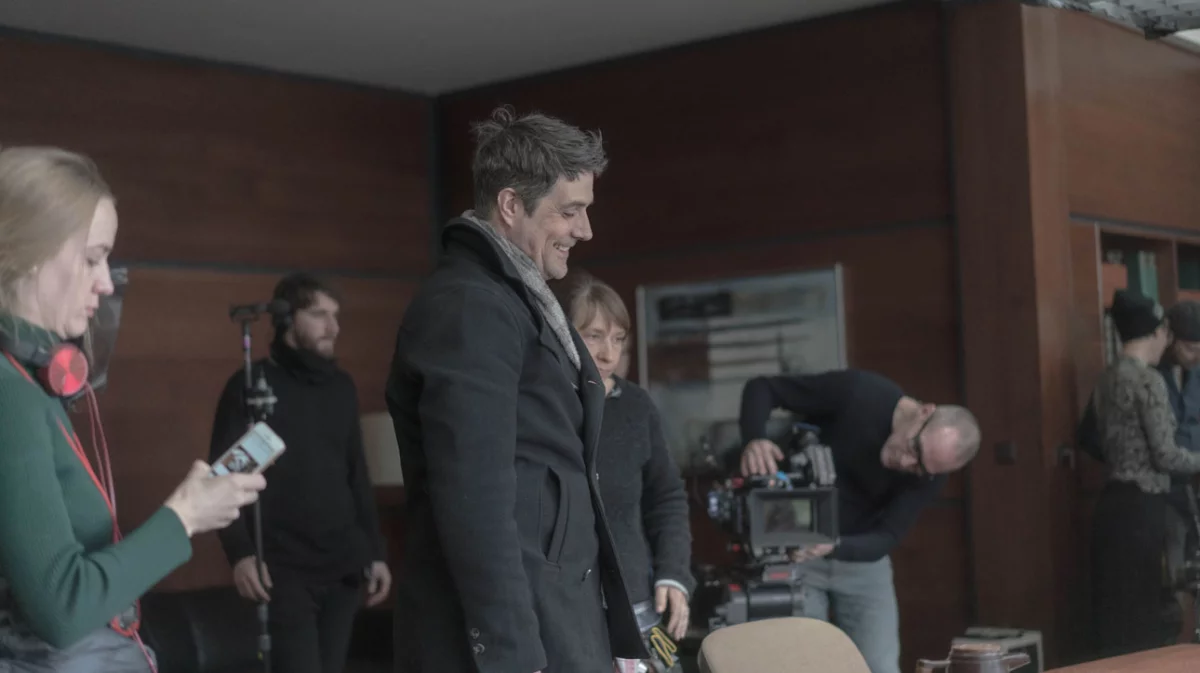
Is Curveball your production company Bon Voyage's biggest project to date?
Amir Hamz: With the new company constellation, "Curveball" is actually the biggest project so far, yes. But we have been in charge of similarly large films in the past, albeit not under the company's label.
Fahri Yardim is the third Executive Producer at Bon Voyage. How did the three of you come together?
Amir Hamz: Fahri studied sociology as a minor subject in Hamburg and I studied political science, which is where we met. It was a natural fit that "Curveball", with its political background, was our first big project. Thanks to him, we quickly had a very good connection to NDR, which got involved in the project early on. I've known Christian for almost ten years through various other projects such as "The Dark Side of the Moon" and "The Nightmare". And Christian and Fahri have also made films together in the past. So the company was just a logical next step. We all wanted to make the process of making a film even more proactive. At the same time, we also shared a great curiosity for other formats.
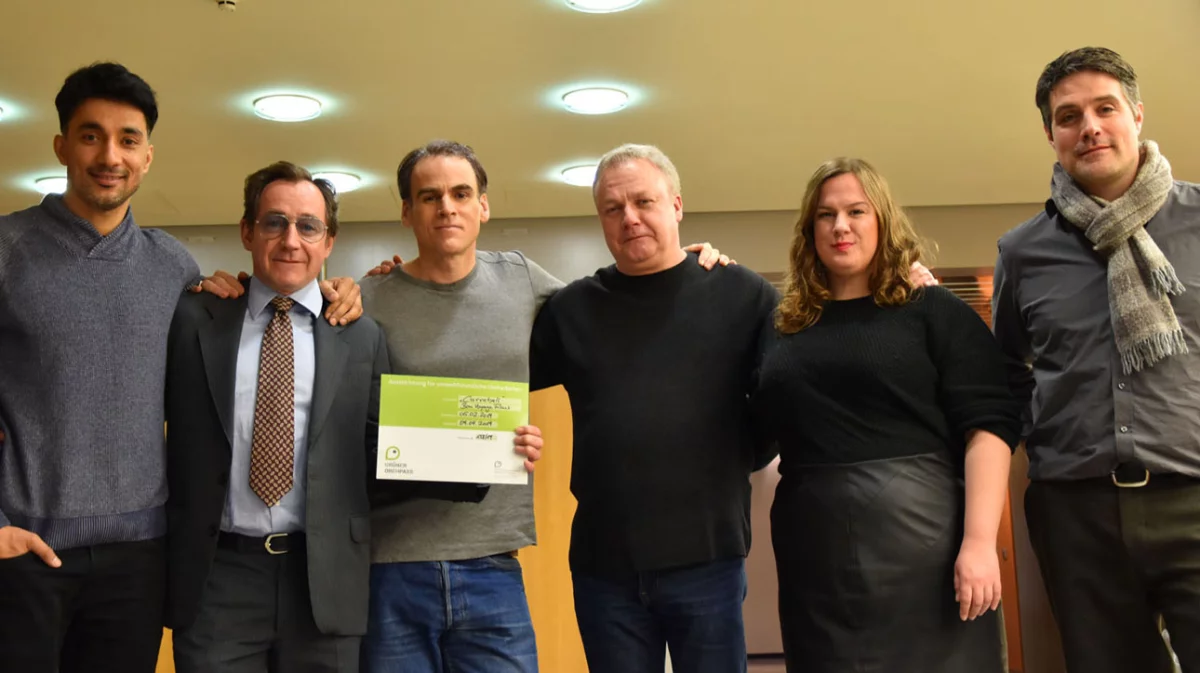
And what direction do you want your new company to take?
Amir HamzOur portfolio includes not only feature films, but also documentaries, series and other formats. We want to fill a gap between aspiration and commerce. In Germany, you often have to decide in favour of one or the other. We don't want that.
Christian SpringerWe don't have a particular focus, even if that shouldn't sound arbitrary. But we are open. There has to be an exciting framework or a story that touches us. We develop things from the gut and see how we can perhaps do something different. And all three of us are on the same page.
Amir HamzThe great thing about today's world is that you can enter into partnerships with a wide variety of players. Whether streaming platforms, pay-TV broadcasters or public service platforms such as funk. You can make cinema, series or documentaries, think in all directions and find the right partner for every idea. That's very much our nature. We are looking for the right vehicles to tell exciting stories.
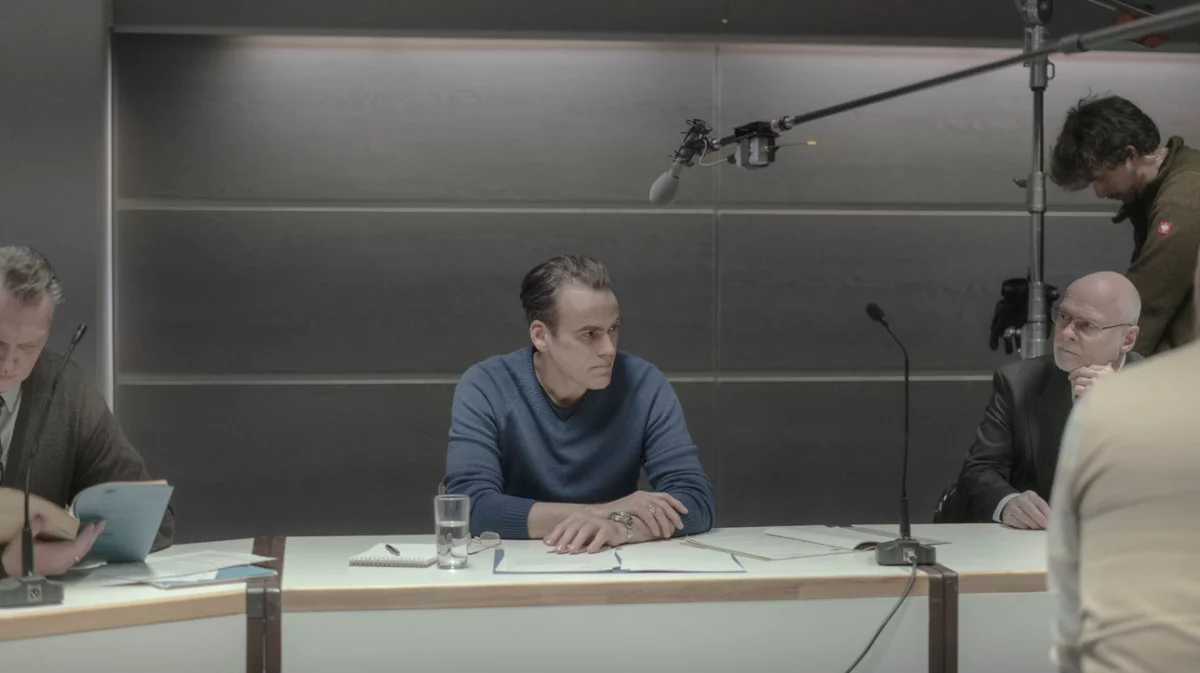
How do the three of you divide up the tasks?
Amir HamzFahri is and remains an actor, so he's not as involved in the day-to-day business as we are. As a result, he usually has a very fresh and intelligent view of the projects, which helps us. He brings a lot of clarity, coupled with his many years of experience and hundreds of scripts he has read.
How ideas turn into concrete projects is something that usually happens through me, as I have a lot of contact with creative people, agencies and potential partners and have a vision early on. You stumble across an article and say, "You could actually do something with this". Just like with Curveball. I really enjoy this work.
Christian Springer: I am then the one who subjects everything to a certain reality check (laughs). But it all flows into one another and you can't really tell them apart.
Do you feel any particular pressure with Curveball as it's your first big project?
Christan SpringerWhen I was accepted by the Berlinale, a lot of pressure was released. Because beforehand there's always a certain uncertainty as to whether you've done everything right or not.
Do you remember when you found out that Curveball was screening at the Berlinale?
Amir HamzWe had a dinner date with Fahri in Berlin in the evening - and then the artistic director of the Berlinale, Carlo Chatrian, called. That was on 15 January at almost exactly 8 p.m., and it has stuck in my mind. Christian's first reaction was "let's not panic". And I really couldn't concentrate on anything that whole evening (laughs). But that's what you do it for. A premiere in front of 2,000 people in the Friedrichstadt Palast - that's madness.






.jpg?fit=max&w=800&h=2320&q=90&fm=webp)